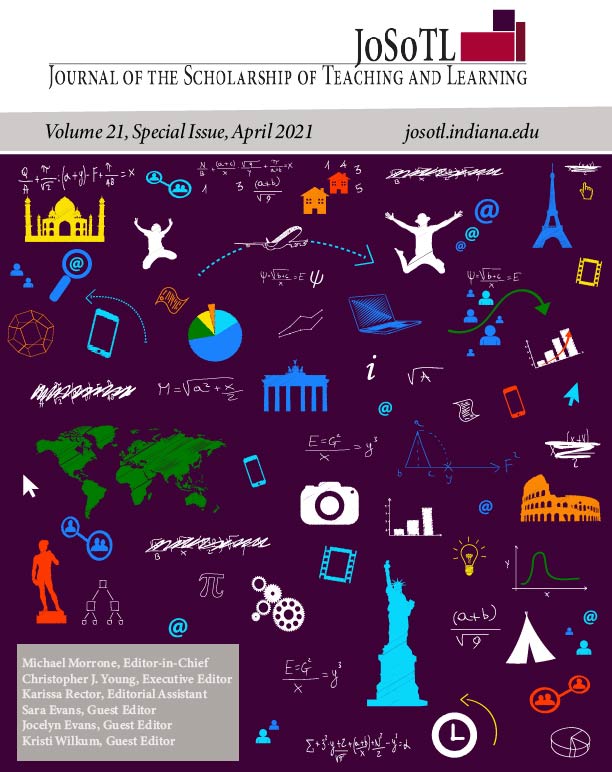Undergraduate Researchers: Mentees and Mentors
Main Article Content
Abstract
This article describes the tiered mentoring approach to undergraduate research at a regional comprehensive university. In addition to mentorship of undergraduate student researchers by faculty and graduate students, tiered mentoring includes high school student researchers. The high-impact practice of student research is particularly impactful at this institution, where 40% of first-year students are first-generation college students, and the campus houses a residential science, technology, engineering, and mathematics high school. The wide variety of opportunities for student research involvement, including opportunities for students to serve in both mentee and mentor roles, has contributed to tiered mentorship becoming a prominent component of our university culture. Strategies for beginning and expanding the involvement of high school students as researchers in postsecondary settings are discussed.
Downloads
Article Details

This work is licensed under a Creative Commons Attribution 4.0 International License.
- Authors retain copyright and grant the Journal of the Scholarship of Teaching and Learning (JoSoTL) right of first publication with the work simultaneously licensed under a Creative Commons Attribution License, (CC-BY) 4.0 International, allowing others to share the work with proper acknowledgement and citation of the work's authorship and initial publication in the Journal of the Scholarship of Teaching and Learning.
- Authors are able to enter separate, additional contractual agreements for the non-exclusive distribution of the journal's published version of the work (e.g., post it to an institutional repository or publish it in a book), with an acknowledgement of its initial publication in the Journal of the Scholarship of Teaching and Learning.
- In pursuit of manuscripts of the highest quality, multiple opportunities for mentoring, and greater reach and citation of JoSoTL publications, JoSoTL encourages authors to share their drafts to seek feedback from relevant communities unless the manuscript is already under review or in the publication queue after being accepted. In other words, to be eligible for publication in JoSoTL, manuscripts should not be shared publicly (e.g., online), while under review (after being initially submitted, or after being revised and resubmitted for reconsideration), or upon notice of acceptance and before publication. Once published, authors are strongly encouraged to share the published version widely, with an acknowledgement of its initial publication in the Journal of the Scholarship of Teaching and Learning.
